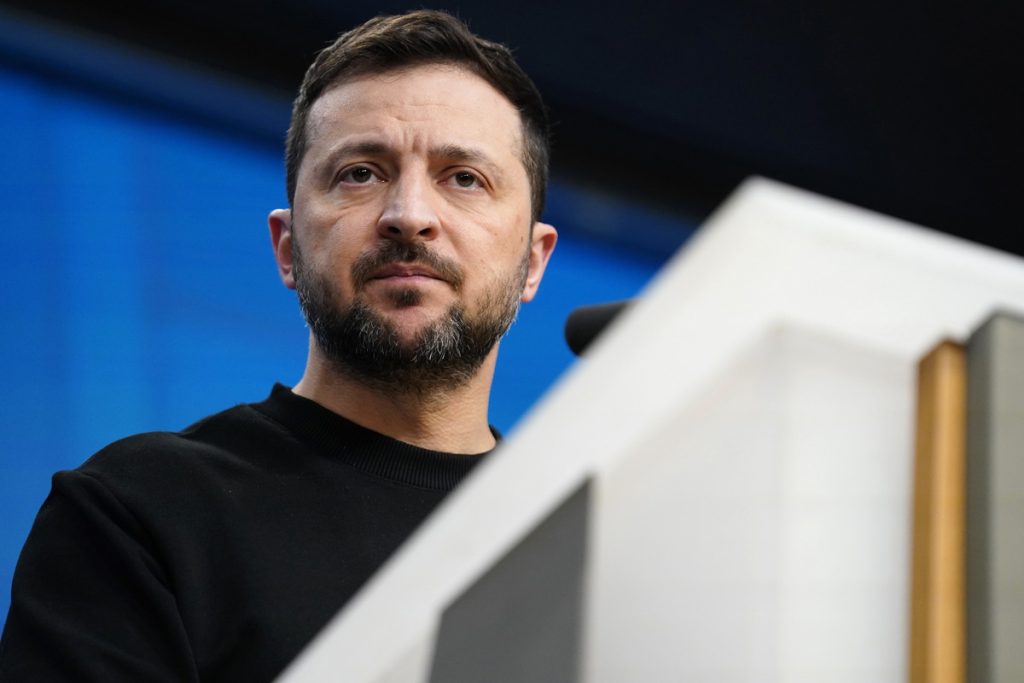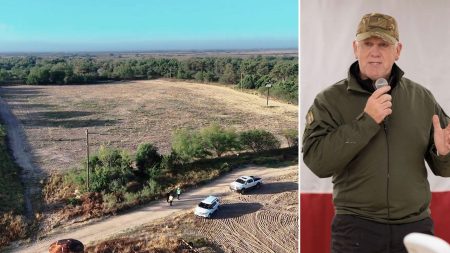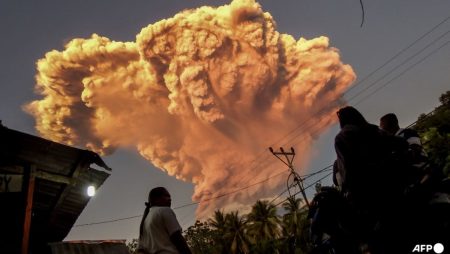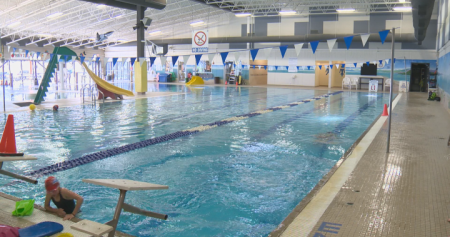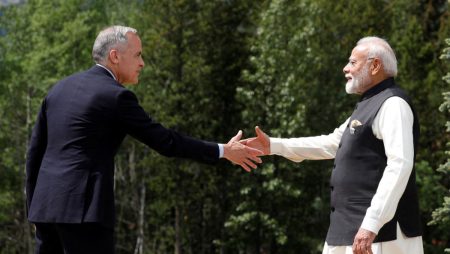The evolving conflict in Russia’s Kursk region has taken a grim turn with the reported involvement of North Korean troops and mounting casualties. Ukrainian President Volodymyr Zelensky, in a recent interview, estimated that approximately 3,800 North Korean soldiers have been killed or wounded in the fighting. This represents nearly a third of the estimated 10,000 to 12,000 North Korean soldiers believed to have been deployed to Russia, a figure based on assessments from U.S., Ukrainian, and South Korean intelligence. The presence of these troops, some reportedly belonging to Pyongyang’s special forces, underscores the increasing internationalization of the conflict and the lengths to which Russia is willing to go to bolster its depleted forces. The North Korean deployment, believed to have commenced in October 2024 with combat engagement beginning in early December, highlights the Kremlin’s growing reliance on foreign support amidst significant losses in its own ranks.
The Kursk region, bordering Ukraine, has become a focal point of intense fighting since Ukrainian forces launched a surprise cross-border offensive in August 2024. Kyiv’s advance into internationally recognized Russian territory has prompted a fierce response from Moscow, determined to regain full control. The North Korean troops have been deployed to this volatile region, specifically the western part of Kursk, where they are reportedly engaging in massed, dismounted assaults against Ukrainian positions. While the exact impact of their presence remains to be seen, the high casualty rate among these soldiers points to the brutal nature of the fighting and the challenging conditions they face on the front lines. The continued clashes in Kursk highlight the strategic importance of this region for both sides and the escalating stakes of the conflict.
The involvement of North Korean soldiers has drawn international attention and raised concerns about the treatment of these troops. Reports suggest that they are being used as expendable forces, often ordered into futile attacks against well-defended Ukrainian positions. White House National Security Communications adviser John Kirby has stated that the North Korean soldiers appear to be highly indoctrinated, continuing their assaults even when their chances of success are minimal. Disturbingly, there have also been reports of North Korean soldiers taking their own lives rather than surrendering to Ukrainian forces, possibly out of fear of repercussions for their families back home. These reports paint a bleak picture of the conditions facing these soldiers, caught in the crossfire of a conflict far from their homeland.
The reported casualties among North Korean troops in Kursk have been a subject of ongoing assessment. In late December, White House and Pentagon officials estimated that approximately 1,000 North Korean troops had been killed or wounded in the fighting. Zelensky, around the same time, placed the figure at 3,000. These varying estimates highlight the difficulties in obtaining accurate casualty figures in an active conflict zone. However, regardless of the precise number, the significant losses suffered by North Korean forces underscore the intensity of the fighting in Kursk and the human cost of the conflict. The deployment of these soldiers and the heavy casualties they have sustained raise serious questions about the ethical implications of involving foreign troops in such a manner.
Zelensky’s recent statement to U.S. podcaster Lex Fridman, estimating 3,800 North Korean casualties, represents the latest update on the situation. He also mentioned capturing several seriously wounded North Korean soldiers who could not be resuscitated. These accounts further illustrate the grim realities on the ground and the challenges faced by medical personnel in providing adequate care amidst the ongoing conflict. The involvement of North Korea adds another layer of complexity to an already convoluted conflict, highlighting the diverse range of actors and interests at play.
The ongoing battles in Kursk suggest that casualty numbers, including those among North Korean, Russian, and Ukrainian troops, are likely to continue rising. The effectiveness of the North Korean contingent in bolstering Russia’s efforts remains unclear. However, the high casualty rate among these soldiers suggests they are facing significant challenges on the battlefield. The unfolding situation in Kursk warrants close monitoring as the conflict continues to evolve and the human cost continues to mount. The international community must address the ethical implications of utilizing foreign troops in this manner and work towards a peaceful resolution to the conflict. The future remains uncertain, but the current trajectory points to a prolonged and potentially escalating conflict with dire consequences for all involved.




